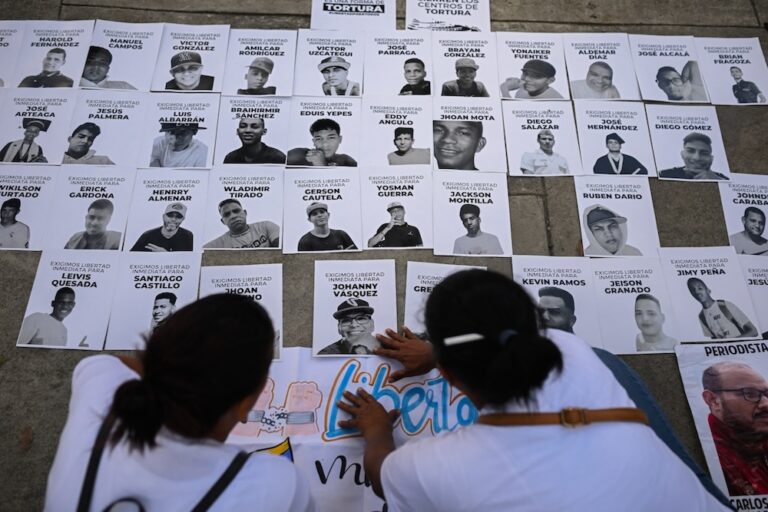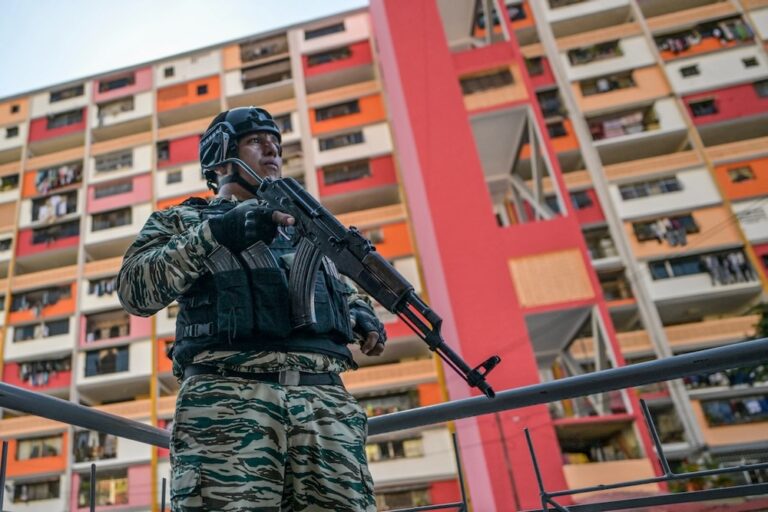(FIP/IFEX) – FIP coordinator Gregorio Salazar expressed the organisation’s concern over repeated verbal attacks by Venezuelan President Hugo Chávez against some of the most important Venezuelan newspapers. Chávez has severly challenged the press, especially the daily “El Nacional” for publishing information related to the confiscation of explosive materials at the Maiquetia Airport, one day before […]
(FIP/IFEX) – FIP coordinator Gregorio Salazar expressed the organisation’s concern over repeated verbal attacks by Venezuelan President Hugo Chávez against some of the most important Venezuelan newspapers.
Chávez has severly challenged the press, especially the daily “El Nacional” for publishing information related to the confiscation of explosive materials at the Maiquetia Airport, one day before the return of the Venezuelan president from a twenty-one day trip overseas.
According to Salazar, who participated at IFEX’s annual conference in Bangkok, Thailand, the increasingly frequent attacks on the press by President Chávez do not emulate democratic behaviour. Salazar said that Chávez complains about anything be it a simple headline or coverage of a news event that is not to his liking.
The repeated presidential attacks are detrimental to the necessary climate of tolerance and guarantees for journalistic work and freedom of expression, Salazar stated. He noted that in the recent past enraged mobs attacked journalists and distributed ignominious pamphlets against them, following public skepticism by President Chávez, who accuses the media of being a counterrevolutionary.
In response to Chávez’s attacks, the daily “El Nacional” stated in its editorial that the president denied the explosives’ seizure but failed to mention that at least four of his government’s spokepersons confirmed the information to the press. His complaints, therefore, do not make sense, the newspaper noted.
In the editorial, “El Nacional” asked what the apprehension was over openly disclosing the alleged terrorist act. We are not about making up fictitious stories nor inventing ghosts: that is the purpose of literature not that of journalism, it stated.
Peruvian journalist Roberto Mejía Alarcon, director of IFJ Human Rights section for Latin America, with headquarters in Lima, who also participated in the IFEX conference, stated that Chávez, with his repeated practice of unjustly attacking the press, is a bad example for other governments in the region. Furthermore, with his authoritarian behaviour he has turned into former Peruvian President Alberto Fujimori’s successor, who was also, at the height of his power, accustomed to attacking the press in the same manner as Chávez. Alarcon recalled that at that time Fujimori was told that he who does wrong will suffer in the end.


